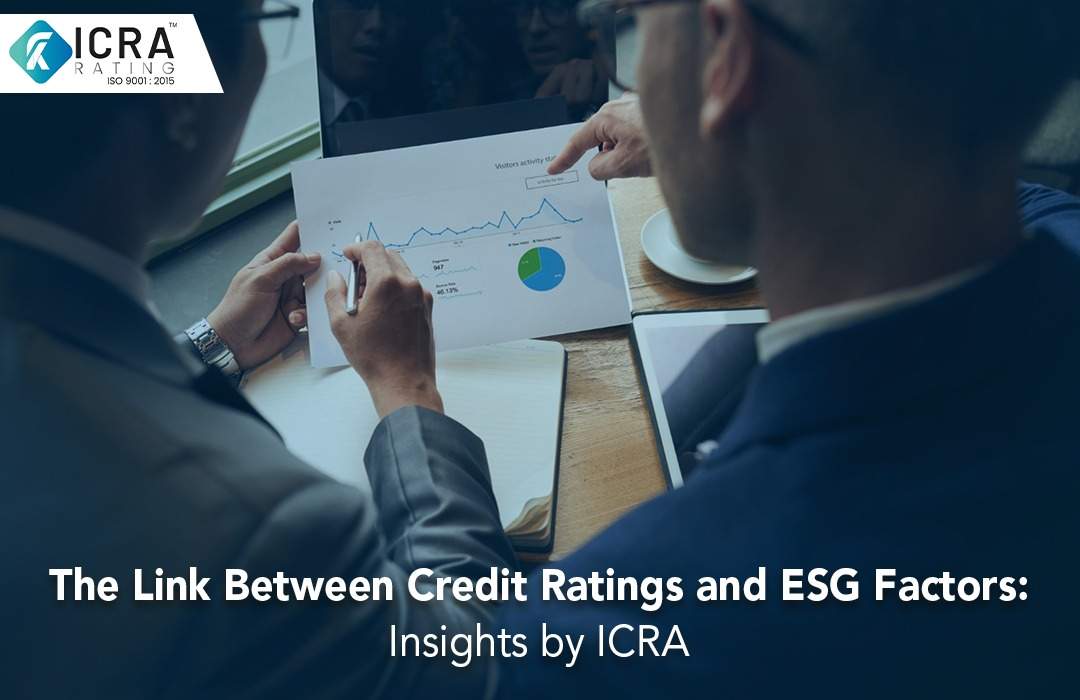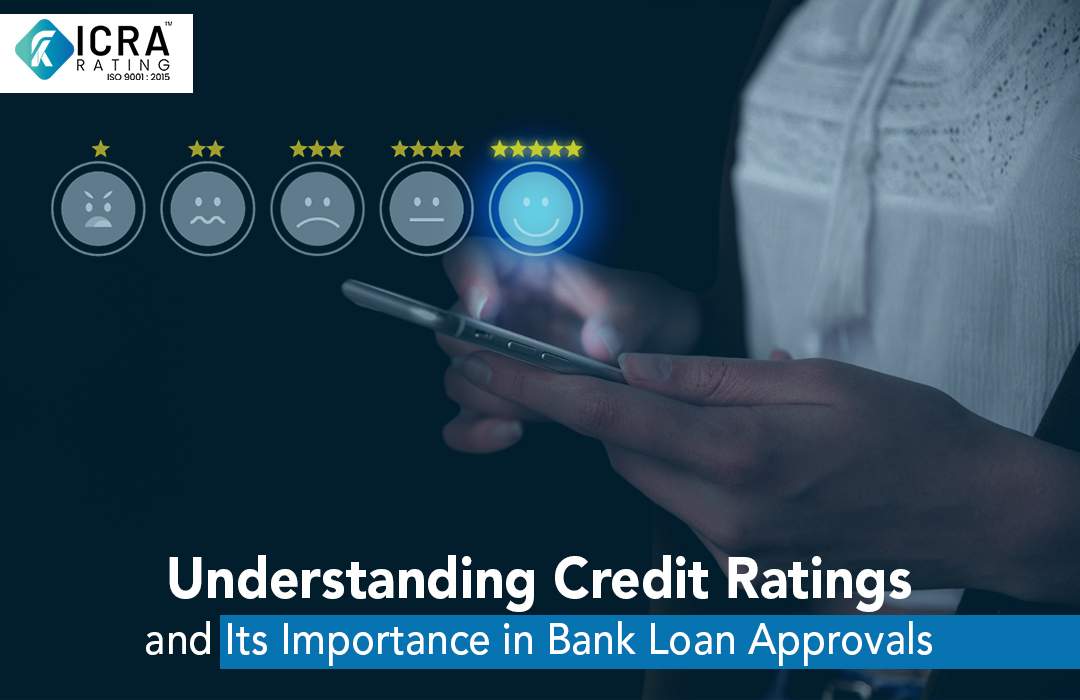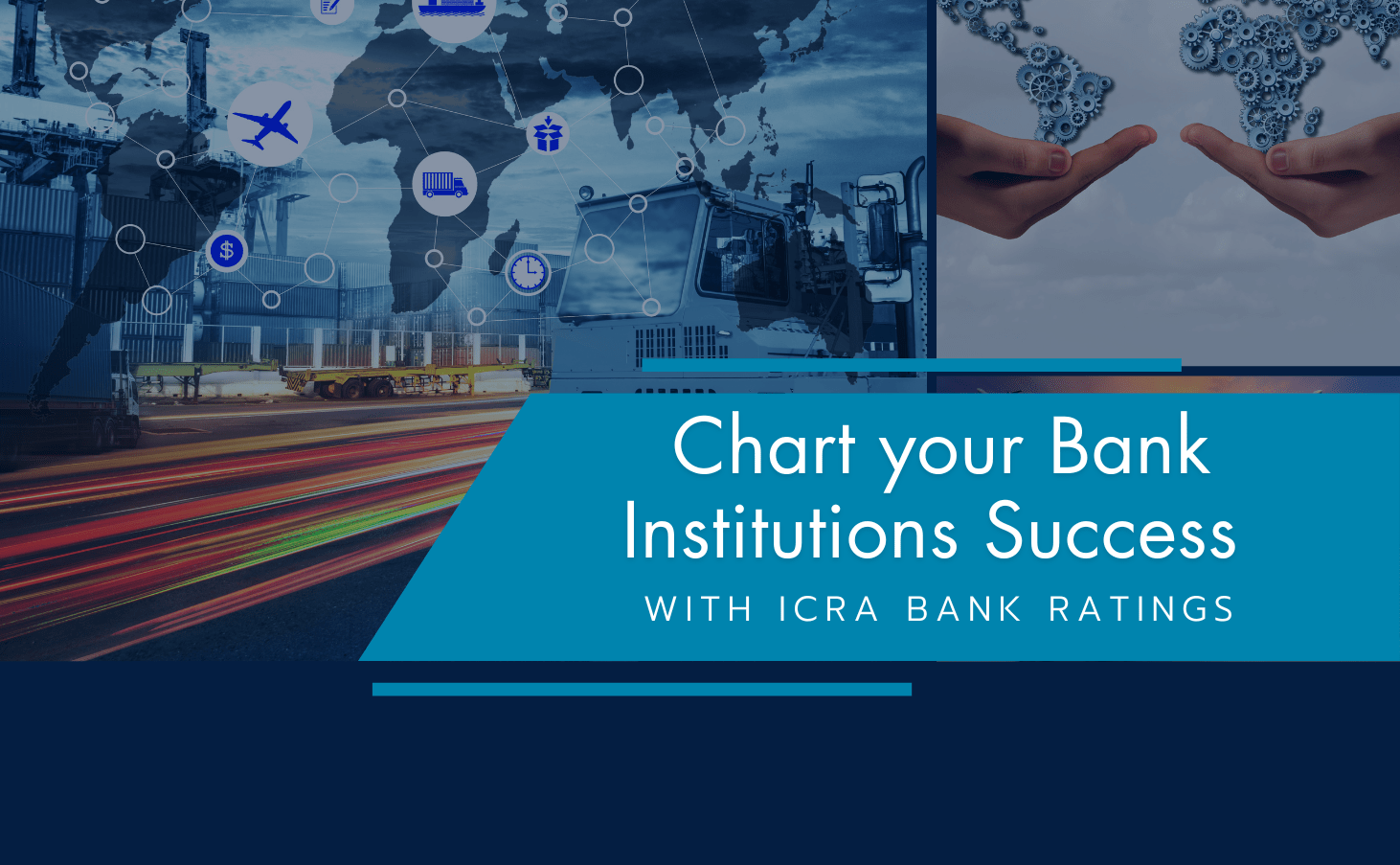ICRA: Leading Africa Credit Rating Agency ICRA, a leading Africa credit rating agency, plays a pivotal role in shaping investment strategies and maintaining financial integrity across the continent. As Africa’s financial landscape evolves, ICRA continues to be a critical player in fostering economic growth and providing essential guidance for investors and businesses alike. What is a Credit Rating? A credit rating is an independent evaluation of an entity’s financial stability and its ability to meet debt obligations. This assessment offers valuable insight into whether an entity can repay its debts within the stipulated time frame, helping investors and lenders gauge the associated risks. As a prominent Africa credit rating agency, ICRA sets benchmarks for financial transparency, guiding investors and lenders in their decision-making. The Role of ICRA as an Africa Credit Rating Agency As an Africa credit rating agency, ICRA assesses the financial health of governments, businesses, and financial institutions across the continent. By considering key factors such as macroeconomic stability, debt management, and governance, ICRA ensures its ratings accurately reflect the creditworthiness of the entities it evaluates. ICRA’s structured rating scale includes: • AAA: Represents the highest credit quality, with minimal risk. • AA & A: Indicates strong financial health with low to moderate risk. • BBB: A stable rating that reflects moderate credit risk, often considered suitable for investment. • BB & Below: Denotes high risk, often linked to speculative investments. Why ICRA’s Credit Ratings Matter for Africa’s Financial Sector ICRA’s credit ratings are crucial for the financial stability and growth of Africa. Here’s why these ratings matter: • Investment Decision-Making: Investors rely on ICRA’s ratings to assess the financial health of entities before making investment decisions. Entities with higher ratings signify lower risk, making them more attractive to investors. • Access to Capital: Companies with high credit ratings from ICRA can secure funding at favorable interest rates. A good rating assures lenders that borrowers are financially stable and capable of repaying their debt within the required timeframe. • Market Confidence and Stability: Transparent and reliable ratings from ICRA foster confidence among investors and stakeholders, promoting stability within Africa’s financial markets. • Localized Risk Analysis: ICRA’s deep understanding of regional factors—such as currency fluctuations, policy shifts, and economic diversification—ensures fair and accurate credit evaluations tailored to Africa’s unique challenges. • Deep Market Understanding: With specialized knowledge of Africa’s economic landscape and regulatory environment, ICRA offers the expertise necessary for accurate, in-depth assessments of financial entities. How Businesses Can Leverage ICRA’s Credit Ratings Businesses in Africa and globally can strategically use ICRA’s credit ratings to enhance their financial position and unlock growth opportunities: • Attract Investment: A high credit rating from ICRA enhances a business’s appeal to investors, making it easier to secure funding for expansion and innovation. • Lower Cost of Capital: Companies with favorable ratings from ICRA can access loans at better rates, reducing the overall cost of capital. • Expand into New Markets: With ICRA’s strong reputation and favorable ratings, businesses gain the confidence they need to enter new markets and compete on a global scale. Conclusion ICRA’s role as a leading Africa credit rating agency is crucial for the stability and growth of the continent’s financial systems. With accurate, transparent credit assessments, ICRA helps guide investment decisions, improve access to capital, and promote market confidence, all of which are essential for Africa’s economic development. By leveraging ICRA’s credit ratings, businesses can secure better funding, reduce capital costs, and strategically expand their operations across borders. As Africa’s financial landscape continues to evolve, ICRA remains a trusted partner in navigating the complexities of credit risk and investment opportunities.
Category: Uncategorized
ICRA’s Impactful Ratings: Your Key to Smarter Financial Decisions
ICRA’s Impactful Ratings: Your Key to Smarter Financial Decisions Tired of navigating the never ending complexities of financial assessments without any well-defined roadmap? What if we tell you there is a trusted partner that can guide you through the intricate maze of creditworthiness? Sounds good right! Enter the impactful services of ICRA – a unique powerhouse in the world of ratings and analysis. But here’s the question – How can you ensure a company’s transparent, credible and competitive financial standing and what exactly makes ICRA stand out? ICRA is more than just a credit rating company but also a strategic ally for businesses and investors, paving their way in the rating world by specializing in ratings, research and risk assessment. Serving in over various countries across the globe it also caters to a wide range of industries from construction to banking to technological. To shape your next big move ICRA doesn’t just hand out ratings but also offers actionable insights. At ICRA it is not just about crunching numbers. Evaluations provided by ICRA serve as a benchmark for financial stability and credibility that is possible because of their team of experts who analyze from market trends to operational efficiency giving you a 360-degree picture of everything you need to know. What Does ICRA Offer? Think no further because here we are about to explore the untapped potential of ICRA services. Corporate credit ratings – Wondering how a company’s creditworthiness is evaluated? The answer is corporate rating which assesses a firm’s financial health, operational efficiency along with market position helping businesses gain investor trust and spot elevated opportunities. With better corporate rating a company’s position can be enhanced along with attracting better funding while reducing borrowing costs. Factors such as cash flow, profitability, industry trends and management quality are kept in mind when delivering accurate insights. Bank Loan Rating – Planning to secure a loan? Bank loan ratings evaluate whether a company can repay its debt. It begins with evaluating financial ratios, past repayment history and other macroeconomic factors that can affect the borrower’s ability to repay. Businesses that secure a favourable rating are able to negotiate better in terms of loan terms with lower interest rates and can maintain a strong financial position along with strengthening financial relationships with banks. Issuer Credit Rating – How is your company perceived by the market? It is crucial for investors, creditors and other stakeholders to know about a company’s ability to meet financial obligations in its long-term that are evaluated with this rating. Use of both qualitative and quantitative analysis is done by incorporating economic trends and corporate governance aspects. ESG Ratings – This rating comes in a world where sustainability is no longer optional but a necessity. ESG practices guide businesses towards sustainable growth with assessment of the company’s carbon footprint, corporate social , labor policies, ethical governance. ICRA Scorecard – Looking for a simplified way of assessing credit risk? Here you have it with an ICRA scorecard designed specifically for businesses to self-assess their creditworthiness without much complications. It provides a structured evaluation system that helps companies to benchmark themselves against the industry standards. Why ICRA as the Next Step? Financial decisions can be daunting. Let’s face it. But here’s the kicker- ICRA ratings are tailored for your unique needs, that are designed to cut through the noise by delivering actionable insights. A combination of quantitative analysis with qualitative expertise makes the ICRA rating process a rigorous one. If you are looking for a partner for turning your complexities into opportunities, ICRA might be the appropriate answer you’ve been looking for. Services provided by ICRA offer a lifeline of clarity and confidence especially in a world where any financial decision can either make or break your success.
The Importance of ICRA Corporate Ratings: Boosting Credibility and Financial Growth
The Importance of ICRA Corporate Ratings: Boosting Credibility and Financial Growth ICRA stands out for its in-depth evaluation and analysis when it comes to trusted rating agencies. In financial landscape ratings play a very major role inorder to assess the creditworthiness of the businesses. From securing funding for your business to an investor assessing the risk associated with a certain entity or even a policymaker monitoring the everyday market trends, it is highly recommended to understand corporate ratings so that you can leverage the benefits of the ratings provided by ICRA. Let’s Understand What Corporate Rating Is Corporate ratings are an independent assessment of a company’s ability to meet its financial obligations. ICRA analyzes various financial and operational factors related to a business inorder to give them a rating that further reflects their creditworthiness. Through these ratings investors and lenders are able to make informed decisions along with effectively managing potential risks. The ratings assigned also generate a benefit to the businesses such a higher rating indicates lower risk perceived which further play a role in making the borrowing cost lower. Similarly a lower rating is an indication of higher risk associated with a company who might face challenges in securing funding or may have to pay higher interest rates. What Are The Key Factors That Are Considered in ICRA Corporate Rating? Sure! Here lets understand all the factors involved that influences your rating since ICRA evaluates a business taking into account multiple parameters so that an indepth and comprehensive assessment can be ensured. Financial Performance – Critical indicators of a company’s financial stability are its revenue growth, profitability, debt level and cash flow. When the profitability is consistent along with a strong liquidity it can further enhance a company’s rating. Industry Outlook – A company’s rating is influenced by its position within the industry with market trends, regulatory environment and a competitive landscape that plays a role too. Business Model – When companies have a well-defined business model along with diversified revenue streams they tend to have a higher rating. Management Quality – Leadership experience, corporate governance and strategic decision-making also plays a very crucial role in a company’s rating since a well-managed company that has a transparent financial reporting and ethical practices are favored more. Do such questions linger in your mind like how to enhance my company’s financial standing? How to attract more investors and secure better credit opportunities? How can I make my business well prepared to handle financial risks and market fluctuations? Well inorder to achieve a corporate rating that is considered strong and favorable companies are advised to focus on – Strengthen the financial management along with reducing excessive debt. Maintain a transparent financial reporting with a robust corporate governance Diversify the revenue streams so that business risks can be mitigated Enhance operational efficiency along with management of the cost If these are the statements that are still there holding you back from getting a strong rating such as which expert guidance can help me enhance my corporate rating? How can I stay ahead of the curve? Which credit rating agency can help me navigate financial assessments and credit evaluations? Then you are at the right place because here at ICRA we are aware that understanding and improving corporate ratings can be a little complex which is why our team of financial experts assists businesses in providing them with a strategic guidance so that they can strengthen their company’s creditworthiness. With a proven methodology and expert analysis we provide businesses with actionable insights inorder to enhance financial credibility. So what are you waiting for? Reach out to us through our website or give us a call.
How Credit Ratings Affect Interest Rates for Businesses
How Credit Ratings Affect Interest Rates for Businesses Credit rating is a pivotal determinant especially for businesses that aims to secure better loan terms, expand their operations, or even attract investors. In the intricate world of finance, credit ratings serve as numerical or qualitative indicators of creditworthiness of a company which is a measure that influences the interest rates when securing loans. These credit ratings are also an indicator of risk that is associated with a business. Beyond being just a score these ratings also influence other factors such as cost of borrowing, interest rates and the most crucial which is shaping a business’s financial future. Ratings significantly impact your loan interest rates which is why it is crucial for businesses to better understand the nuances of credit ratings and accordingly position themselves. The Interest Rate Equation Interest rates are directly proportional to credit risk of the businesses. It is crucial to have a knowledge of how interest rates are affected due to high or low ratings. Here’s how – High credit rating, lower interest rates – businesses that have a robust financial profile have strong credit ratings further influencing the chance of getting lower interest rates since these ratings provide lenders with the required confidence that their loans will be repaid within a time period further reducing the need for high-risk premiums. Significantly low credit rating leads to higher interest rates as low credit ratings translates to higher risk for lenders. In order to offset this risk the profitability is impacted by charging businesses with low ratings high interest rates. It is important for businesses to understand their credit positioning and take required steps that can help in improving their ratings further enhancing their financial flexibility. Taking a Look At the Key Factors that Influence Credit Ratings At ICRA certain factors are evaluated into giving a rating such as – Financial performance which includes consistent revenue growth along with healthy profit margins and robust cash flows since these components are essential to achieve high credit ratings. When businesses have strong financial fundamentals they are often presented as reliable borrowers with less risks associated with them. Debt to equity ratio is also one of the key determinants of creditworthiness since a well managed debt structure is a reflection of financial discipline while on the other hand excessive leverage can raise concerns regarding repayment capability and capacity. Risks and opportunities associated with a specific industry also play a role in influencing its credit rating keeping in mind how factors such as market volatility, competition, regulatory changes and technological disruptions also play a major role in how a business is rated. Favorable ratings in such an environment can be achieved by demonstrating effective risk management strategies along with diversifying revenue streams and maintaining operational efficiency. The ICRA Advantage Credit ratings are more than just a score but a gateway to financial growth and stability of a business. Through ICRA’s in-depth evaluation you get a transparent and reliable view of a company’s creditworthiness further empowering businesses to make reliable and informed decisions that aligns with their company’s goals. We have a team of experts at ICRA who delivers detailed recommendations inorder to help businesses address weaknesses and secure competitive interest rates.
The Link Between Credit Ratings and ESG Factors: Insights by ICRA
The Link Between Credit Ratings and ESG Factors: Insights by ICRA The intersection between credit ratings and ESG factors has emerged as a focal point for various stakeholders in the fast evolving landscape of finance. With the importance gained by ESG considerations their influence on credit ratings is drastically shaping the way businesses are nowadays evaluated in terms of their financial stability and long-term growth. In the traditional lens credit ratings have focused on financial factors like financial metrics, operational performance and ongoing market trends. With the inclusion of ESG factors a new dimension has been added to the analysis which evaluates a company’s commitment to sustainability. Company’s role in fostering social equity, and the governance practices are no longer seen as peripheral but rather as core determinants of company’s creditworthiness. The Expertise Behind ICRA’s ESG Framework ICRA’s ability to seamlessly integrate ESG factors into credit ratings lies in its diverse and expert team who have decades of collective experience. Client centric approach and deep understanding of financial trends lets the analysts at ICRA ensure that the ratings are not only accurate but also are aligned with regulatory requirements. The seasoned team of analysts at ICRA understands and recognizes ESG risks and opportunities which are integral in understanding an organization’s long-term financial health. Why ESG Integration Matters Incorporating ESG factors into their operations for businesses isn’t just about improving credit rating anymore but also about how they stay relevant in a market which highly values sustainability and accountability. Even for investors giving a priority to ESG aligned portfolios make them view them as less risky and more future-proof. ICRA with their clear actionable insights empowers businesses to align their strategies with ESG standards that are uniform globally further letting them enhance their creditworthiness and societal impact. How ICRA Incorporates ESG in Credit Ratings Inorder to provide a rating that reflects a comprehensive understanding of ESG dynamics ICRA uses an approach that is heavily rooted in extensive research, data analysis and industry-specific expertise. Let us take a closer look at the analysis and understanding of each factors – Environmental Analysis – Through detailed assessments of factors like climate change mitigation, energy efficiency, and waste management practices, ICRA evaluates an organization’s environmental impact. Companies are often viewed as favourable when they demonstrate innovation in reducing carbon emissions or adopt renewable energy sources. Social Metrics – Social performance is a vital factor taken into consideration when evaluating by ICRA which involves analyzing labor practices, employee satisfaction and community impact. When companies have strong social responsibility policies they then exhibit operational stability and reduced reputational risks. Governance Insights – ICRA team delves into a company’s leadership structure along with shareholder rights and transparency in disclosures and adherence to ethical standards. With effective governance frameworks it often leads to better strategic decision-making with reduced risks of frauds and long- term financial stability. ICRA team tailors its ESG evaluations with their quantitative and qualitative insights inorder to align with the nuances of specific industries which ensures that the ratings remain relevant and accurate.
Understanding Credit Ratings and Its Importance in Bank Loan Approvals
Understanding Credit Ratings and Its Importance in Bank Loan Approvals Credit rating – one vital factor that determines the outcome of when individuals or businesses apply for a loan. Credit rating can be seen as a measure of trustworthiness which helps lenders decide whether the loan should be approved and under what conditions. Inorder to understand all this let us first understand what are credit ratings Credit ratings evaluate an entity’s ability to repay debt. These are the evaluations provided by ICRA indicating the creditworthiness of a borrower that can be an individual or business or even a government entity. These ratings provide us with a measure of how likely a borrower is in terms of fulfilling their financial obligations such as repaying loans or meeting other debt commitments. These ratings are based on comprehensive evaluation done by ICRA by taking into account various factors such as borrower’s financial history, financial position, debt profile, economic conditions and more. How Credit Ratings Are Evaluated Credit ratings are determined based on a combination of factors, including: Payment History: Timely repayment of past loans or credit card bills. Credit Utilization: The percentage of credit currently in use relative to the available limit. Length of Credit History: How long the borrower has been using credit. Types of Credit: A mix of secured (e.g., home loans) and unsecured credit (e.g., credit cards). Outstanding Debt: The total amount owed compared to income and assets. Why are Credit Ratings Crucial for Loan Approvals When it comes to loan approvals credit ratings have a major role to play in. Let us take a look at how they matter – Assessing Risk for Lenders – While lending the monte financial institutions take risks that the borrower might fail to repay and hence credit ratings play a role in gauging this risk. The ratings given indicate whether the borrower will be able to repay the loan. High credit ratings are an indication that the borrower is reliable and likely to repay on time while low credit ratings indicate higher risk of default prompting lenders to adjust the loan terms. Determining Loan Eligibility – Borrowers who have a strong ratings have a higher chance of getting their loan applications approved early and quickly. Meanwhile those who have a low credit rating are required to showcase their credibility through additional documents or even collateral. Loan Amounts and Interest Rates – The amount that a borrower gets for loan is dependent on the borrower’s credit rating. While a high rating is a signal of financial stability which can be beneficial to get larger loan amounts at very low interest rates and on the other hand lower credit rating limits the fund available to the borrower along with high rates of interest inorder to compensate for the added risk. Why Borrowers Should Prioritize Their Credit Ratings While credit ratings are more than just numbers they are also a reflection of your financial habits and how financially responsible you are. With a strong credit rating you can gain better access to loan options with very low interest rates. A higher credit rating also strengthens your power to negotiate better terms with the lenders. With credit ratings lenders are able to identify reliable borrowers who have the financial capacity to repay the loan.
The Influence of Credit Ratings on Capital Markets Dynamics
The Influence of Credit Ratings on Capital Markets Dynamics One of the core pillars that supports the growth of capital markets is the constant need for businesses to secure financing. Businesses normally generate enough revenue to cover their operational costs and expansion plans in turn the reality is that most of it requires external funds which can be raised through various sources like issuing shares, applying for bank loans, trade financing, lines of credit, bonds, or fixed deposits. When it comes to capital markets, investors assess risks based on their ability to evaluate credit, but for the markets to operate effectively and maintain investor confidence, regulators are required to safeguard against any malpractice. This is where the role of credit ratings comes into play, which acts as an essential tool for investors thereby making informed decisions while ensuring transparency within the market. Credit rating agencies like ICRA help provide this trust by evaluating the financial health of issuers, guiding investment strategies, and promoting the stability of the financial ecosystem. Decoding ICRA Scales: A Guide to Understanding Ratings ICRA scale is a reflection of the creditworthiness of issuers and tells their ability to fulfill financial obligations. Let us take a look at the scale used by ICRA – AAA: The highest rating, indicating a very low credit risk. Issuers rated AAA are highly likely to meet their financial obligations. AA: High credit quality with very low credit risk. However, they may have slightly more susceptibility to adverse conditions compared to AAA-rated entities. A: Adequate credit quality with low to moderate credit risk. Issuers rated A are considered financially stable but may be more sensitive to economic fluctuations. BBB: Moderate credit risk. The issuer has an adequate capacity to meet its obligations, but there is a higher sensitivity to economic and market conditions. BB: Speculative. Issuers rated BB are considered to have higher risk due to financial instability and are more vulnerable to adverse economic conditions. B: Highly speculative with a high credit risk. Issuers in this category face significant financial challenges. C: Very high credit risk with likely default. Issuers are close to default and may have severe financial difficulties. D: Default. Issuers rated D have defaulted on their debt obligations. The Impact of Credit Rating on Capital Market Stakeholders When it comes to shaping the dynamics of capital markets, it is credit ratings that play a vital role by providing an independent evaluation of the creditworthiness of debt instruments. The four key entities impacted by a debt instrument’s credit rating include: The Investor: Credit ratings serve as a vital tool for assessing the risk associated with debt instruments, such as bonds and loans, for investors. While a higher rating indicates lower risk and often opens doors to lower interest rates, making it more attractive for risk-averse investors. Conversely, lower ratings are an indication of higher risk and may lead to higher returns. It is crucial for investors to rely on these ratings to diversify their portfolios so that they can manage risk effectively, making sure that they make informed investment decisions. The Issuer: For issuers from corporations to governments, credit ratings play a role in directly impacting their cost of borrowing. With high rating funding can be secured at lower interest rates, reducing financial burden. Meanwhile , a low rating can increase borrowing costs further limiting access to capital markets. Credit ratings also have a major role in influencing the reputation of the issuer and can thereby affect their ability to raise funds from investors. The Financial Intermediaries: Financial intermediaries, be it banks, investment firms, or brokers, use credit ratings in assessing the credit risk of debt instruments they deal with as ratings guide their decisions from advising clients on investments or structuring financial products. Financial intermediaries also rely heavily on credit ratings from regulatory compliance to risk management purposes, making sure that they meet the required capital adequacy and liquidity requirements. The Regulator: Regulatory bodies use credit ratings in order to monitor the stability and integrity of financial markets. They often rely on these ratings to set capital requirements and ensure that financial institutions and market participants adhere to necessary standards. Regulators also use credit ratings when it comes to assessing the systemic risk in the market and taking required measures in order to protect investors and maintain financial stability. By impacting investors, issuers, financial intermediaries, and regulators, credit ratings contribute to the overall stability and efficiency of capital markets. 5 Key Things to Remember Before Making Investment Decisions Using Credit Ratings With credit ratings being a valuable tool for assessing the creditworthiness of issuers or instruments, relying on them alone may not always lead to better investment decisions. Let us take a look at five critical considerations which will help you use your credit ratings effectively: 1. Ratings Reflect Credit Risk, Not Market Dynamics Credit ratings measure an entity’s ability to repay its debt while not accounting for factors like market volatility, liquidity risk, or price fluctuations. Let us understand with an example, an instrument rated highly (e.g., AAA) can still face price declines that are due to external economic pressures. It is necessary to always balance ratings with a thorough market analysis. 2. Rating Changes Signal Financial Shifts Upgrades or downgrades are as important as the rating itself . A downgrade signals your financial instability or even changes in the industry , while an upgrade is an indication of improvement. It is crucial to pay close attention to the reasons that go behind these changes inorder to understand the broader implications for your defined investment. 3. Understand the Time Sensitivity of Ratings At times credit ratings are based on historical and current data and may not be able fully capture real-time developments. A stable rating today could lag behind a sudden financial or economic shift. It is crucial to cross-check ratings with up-to-date financial news and reports for a better… Continue reading The Influence of Credit Ratings on Capital Markets Dynamics
Chart your Microfinance Institution Success with ICRA Bank Ratings
Chart your Microfinance Institution Success with ICRA Bank Ratings Ever wondered how bank ratings impact your financial decisions? Bank ratings are basically designed to offer a transparent picture of a bank’s financial profile inorder to help you understand financial health and reliability of the institutions. Understanding the Essence of Bank Ratings With bank ratings you get insights into a bank’s ability. This ability is in terms of meeting its financial obligations along with managing risks and maintaining operational efficiency. The comprehensive evaluation of bank rating is done by taking into various factors such as financial performance, risk management, market position and regulatory compliance. Why Every Bank Needs a Robust Rating ? Since bank ratings serve as a critical tool for investors and regulators as they help individuals and organizations to assess the risk that is associated with the bank profile, further influencing their decision making process. It is crucial for banks to achieve a good rating as it helps in enhancing their reputation and attracting potential investors along with customers. A great amount of confidence is fostered amongst stakeholders when a bank is seen as financially strong thereby also influencing borrowing costs too. How can tailored recommendations from industry experts transform your operations and boost your profitability? The competitive edge provided by a strong rating has its own benefits. When a bank has a strong rating it leads to enhanced credibility which in turn fosters trust and confidence among stakeholders. When a bank achieves a favorable position in the industry it also becomes a favorable choice for potential clients. The comprehensive insights provided by ICRA shapes your strategic decisions which enables you to take decisions effectively and navigate potential risks. Confidence in Every Decision with ICRA Ready to make smarter decisions? Choosing ICRA means choosing a trusted partner. ICRA believes in unlocking the full potential of your institution so that it remains well-positioned. Aiming to improve your bank rating or be it seeking clarity, ICRA is here to guide you on the right path. Why wait? Discover ICRA ratings which can help you navigate challenges, and seize future opportunities. Partnering with ICRA isn’t just about gaining a rating it’s also about gaining a strategic partner that is dedicated to help you grow and gain success. Here ‘s what ICRA has to say to their clients – “ICRA is committed to provide insightful bank ratings by their team of experts with utmost precision. At ICRA our goal has always been to provide transparent and accurate insights. We understand that each institution has their unique challenges which is why we provide tailored services for your institution’s needs. ICRA is here to guide you and help you make well-defined decisions so that you get the clarity and confidence that you deserve.” For more info Visit here: www.icrallc.com
ICRA: Where Insightful Ratings Drive Informed Decisions
ICRA: Where Insightful Ratings Drive Informed Decisions Welcome to ICRA! Are you unsure which rating service is right for your business needs? The team of experts at ICRA is here to make it simple for you. At ICRA, we simplify the process to help you discover the rating service that’s suitable for you and point you in the right direction. The world of rating can seem daunting. With so many options available, we understand that choosing the right service can be confusing, so ICRA is here to make it easier than ever. Be it Corporate rating or ESG rating or Bank rating, ICRA is here to walk you through the wide range of services they provide to ensure you select the right service that offers value and success to your company. Why choose ICRA? ICRAs expertise is something that you can trust. With years of experience, ICRA leaves no stone unturned when it comes to offering unparalleled insights with its rating services to help your business make well-defined decisions. When it comes to providing integrity and transparency, it is none other than your trusted partner ICRA, that gives you a clear understanding of your financial profile. Due to unbiased ratings, ICRA is recognized in diverse sectors across borders. A wide range of services are provided like ESG Ratings, Corporate Ratings, Credit Ratings, Bank Ratings, and ICRA Scorecard which is a no-cost evaluation tool. These services are tailored to suit your specific needs giving you the best of international standards and local market expertise combined. What Are ESG Ratings? With ESG ratings you get to assess a company’s performance across three major criteria which are Environmental, Social, and Governance, giving us in-depth insights into these crucial factors. Companies who take into account these crucial factors are seen as more sustainable and responsible thereby making them even more attractive in the eyes of potential investors. A commitment to sustainability and adherence to ethical practices make a company not only socially responsible but is showcased as of long-term value and trustworthy. Why ESG Ratings Matter for Your Business ESG ratings are becoming increasingly one of the factors that most investors are taking into account when making any decisions. These investors look forward to investing in companies that are seen as sustainably responsible along with legal practices. A company’s ability to effectively manage its risks is indicated by its high ESG ratings which makes them more resilient to regulatory changes. With an elevated ESG performance, a company can enhance its reputation and further attract potential customers. Precision Meets Performance — ICRA’s Tailored Rating Solutions A strong commitment to sustainability and ethical governance is holding the utmost importance in the evolving economic sphere. Not only it is seen as a responsibility that is to be fulfilled by the companies but it also holds strategic advantages. Why wait? Take the next step in securing your company’s future by connecting with ICRA now. Let the expert team at ICRA guide you toward the right rating solution for your business. For more info Visit here: www.icrallc.com
ICRA Corporate Ratings: A Mirror of Your Company’s Financial Health
ICRA Corporate Ratings: A Mirror of Your Company’s Financial Health Corporate ratings are more than a reflection of a company’s financial profile. They are much more than that. They are a forward-looking assessment of the company’s overall stability, potential risks, operational efficiency, and position in the market. The transparent and invaluable insights provided by ICRA corporate ratings are a measure of the creditworthiness of corporate entities that enable various stakeholders to assess the potential risk and return on investment associated with that business. These ratings offer clarity as they measure a company’s ability to meet its financial obligations. Beyond providing an evaluation of a company’s profile, corporate ratings are a powerful tool in boosting the confidence of various investors and enhancing a company’s reputation in the marketplace further impacting its financing terms. Ranging from a high rating to a low rating, the type of rating given to a company affects its funding opportunities, reputation, investor confidence, interest rates, and long-term business goals. With a higher rating, doors to multiple opportunities are opened and the chances to gain capital on favorable terms are higher. Meanwhile, a lower rating has difficulty in securing finance and even investor confidence which results in increased borrowing costs. Strategic Advantage of ICRA Corporate Ratings When it comes to corporate ratings its benefits are multitudinous and has a vast impact overall that further shapes the financial and operational dimension of a company. Impact on borrowing costs When the rating of a company is higher it has a direct impact on the borrowing costs. The strong rating is favorable in gaining loans at very low interest rates by the lenders. Such companies with strong ratings are viewed as lower-risk borrowers thereby significantly reducing the company’s cost of capital. Elevated investor confidence A strong rating is an indication of a company that is financially sound and stable and is well-managed and capable of meeting any financial obligations. With a strong profile, the confidence of investors is increased which further makes the company attractive in the eyes of investors. Market reputation and brand image A competitive advantage can be gained by companies that are high rated when it comes to market reputation. This strong rating allows the company to enhance its brand image gain a better position and stand out well in the industry. Important factors such as trust and reliability when it comes to making decisions are ticked off by strong reputed companies making it easier for them to enter untapped markets. Regulatory standards and legal compliance High-rated companies are seen as low risk which is why it results in few regulatory obstacles by the financial regulators further facilitating a smoother relationship with them. This allows the companies to keep their focus on growth and streamline their operations effectively. ICRA Corporate Ratings for Unmatched Business Clarity The strategic advantage of ICRA corporate ratings shapes a company’s success by helping it navigate intricate dynamic market conditions through insightful assessment. The client-centric approach by ICRA allows them to offer personalized support that goes beyond standard metrics. The team at ICRA ensures that they work closely with the companies so as to get a clear picture of specific industry trends and challenges enabling the companies to make impactful decisions. For more info Visit here: www.icrallc.com










